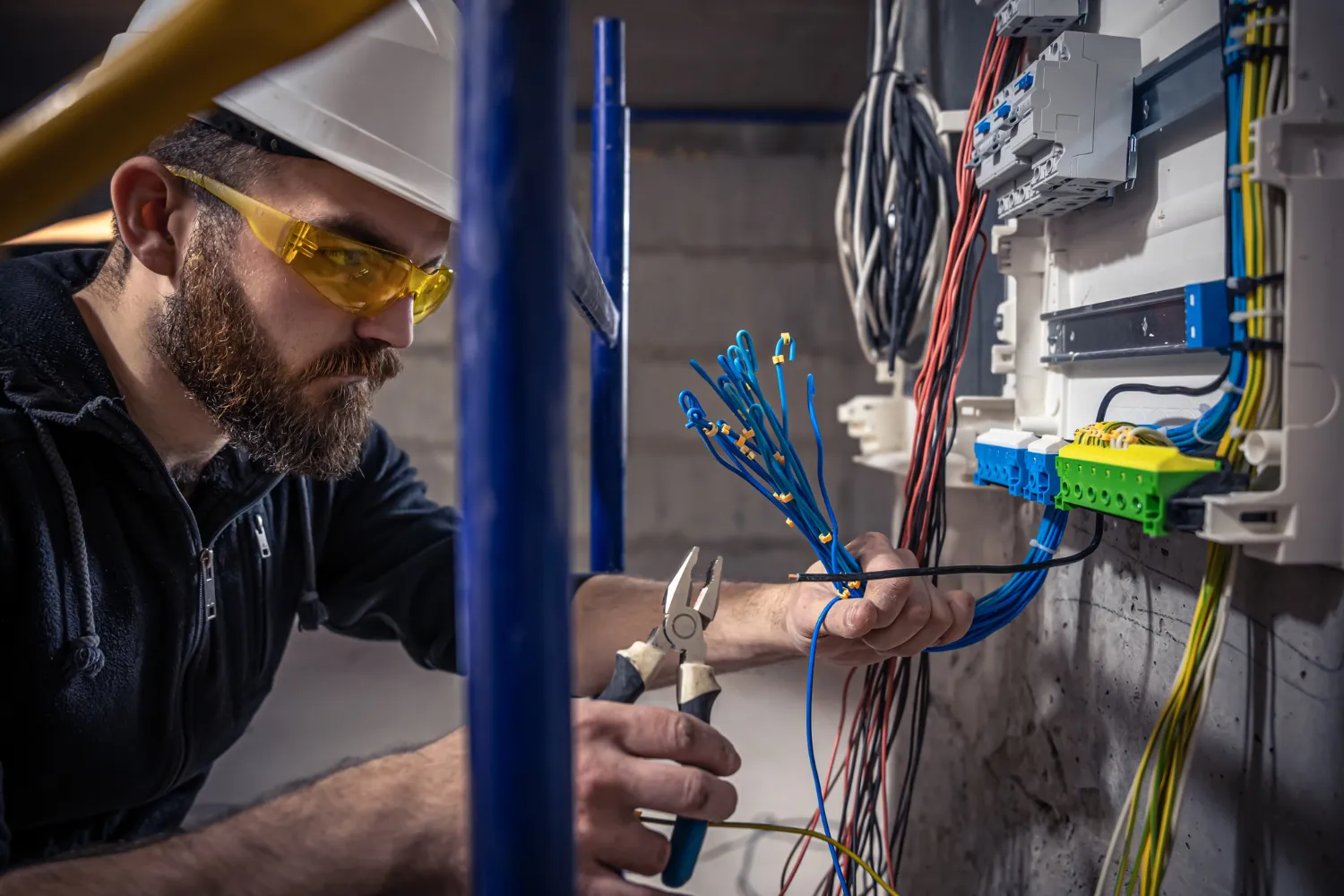Electricity powers almost everything in our homes — from lights and appliances to entertainment and security systems. While it makes life convenient, electrical hazards can lead to dangerous accidents, fires, or even electrocution if safety measures aren’t followed.
Here are the top 10 electrical safety tips every homeowner should follow to keep their home safe and secure.
1. Inspect Cords and Plugs Regularly
Frayed wires, damaged plugs, or loose connections are major fire hazards.
- Replace worn-out cords immediately.
- Avoid using devices with exposed wiring.
- Check for signs of overheating, like melting or discoloration.
Pro Tip: Use high-quality surge protectors for sensitive devices like TVs and computers.
2. Avoid Overloading Outlets
Plugging too many devices into a single outlet or extension cord can cause overheating and start a fire.
- Distribute appliances across multiple outlets.
- Use power strips with built-in overload protection.
- Never daisy-chain multiple extension cords together.
3. Keep Electrical Devices Away from Water
Water and electricity don’t mix.
- Avoid using electrical devices near sinks, bathtubs, or pools.
- Dry your hands before touching any electrical equipment.
- Install GFCI (Ground Fault Circuit Interrupter) outlets in kitchens, bathrooms, and outdoor areas for extra protection.
4. Unplug Unused Appliances
Even when turned off, plugged-in appliances can still draw power and pose a fire risk.
- Unplug chargers, kitchen appliances, or electronics when not in use.
- This also helps save on your electricity bill.
5. Use the Right Wattage for Light Fixtures
Using the wrong bulb wattage can overheat the fixture and cause a fire.
- Check the recommended wattage printed on the fixture or lamp.
- Switch to LED bulbs, which are safer, energy-efficient, and produce less heat.
6. Keep Children Safe
Curious kids can accidentally get hurt around electrical outlets and devices.
- Use safety caps or childproof outlet covers.
- Keep cords and wires out of their reach.
- Teach them about the dangers of electricity from an early age.
7. Schedule Regular Electrical Inspections
If your home is older or you notice frequent issues like tripped breakers, flickering lights, or burning smells, get a professional inspection.
- Hire a licensed electrician to inspect your wiring, circuit breakers, and outlets.
- Consider an upgrade if your system is outdated.
8. Be Cautious with Extension Cords
Extension cords are for temporary use, not a permanent solution.
- Avoid running them under rugs or through doorways.
- Choose heavy-duty cords for high-power appliances.
- Replace old or damaged cords immediately.
9. Stay Alert for Warning Signs
Early detection can prevent major accidents. Watch for these warning signs:
- Buzzing sounds from outlets
- Sparks or a burning smell
- Frequent breaker trips or blown fuses
If you notice these, turn off the power and call an electrician immediately.
10. Install Smoke Detectors and Fire Extinguishers
Electrical fires can happen anytime, so being prepared is crucial.
- Install smoke detectors in every room and check batteries monthly.
- Keep a Class C fire extinguisher nearby for electrical fires.
- Make a family escape plan and practice it regularly.
Final Thoughts
Following these electrical safety tips can significantly reduce the risk of accidents and give you peace of mind. If you ever feel uncertain about an electrical issue, don’t try to fix it yourself — always consult a licensed professional.
Safety begins with awareness. Take these precautions today to keep your home and loved ones safe from electrical hazards.

